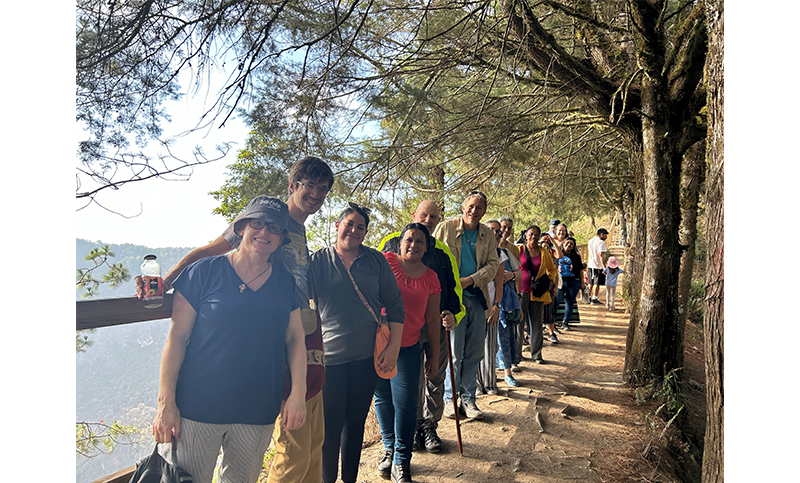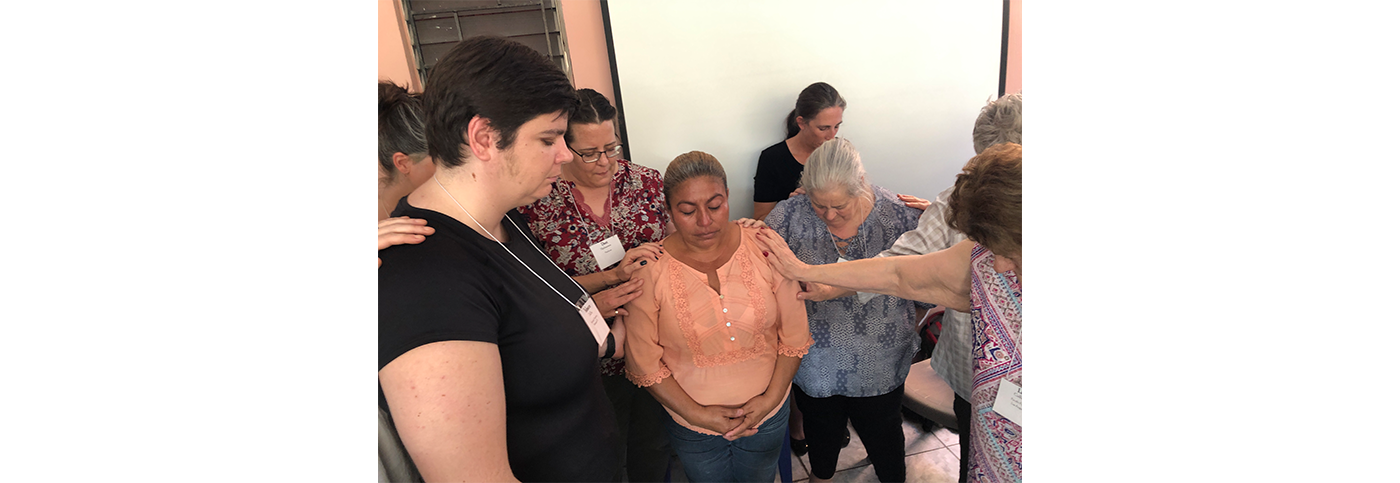Peace & Global Witness
A voice to affirm all people
The Washington Corrections Center for Women is both the largest and the only maximum and medium security prison for women in the state. It’s surrounded by barbed wire, and you have to go through five locked gates to get to the main population.
Inside this fortress of concrete and steel, thanks to the work of three dynamic Presbyterian leaders, a unique worshiping community has been planted — Hagar’s Community Church.
“The women I have the opportunity and the privilege to pastor to are wonderful and deeply knowledgeable about the Bible,” said Rev. Lane Brubaker, who leads Hagar’s Community Church. “They are learning that they are still indeed loved by God and are not defined by their worst mistake. But, rather, they are defined by their beloved.”
Olympia Presbytery worked over several years with Prison Congregations of America to set up the prison ministry. Rev. Christine Long led the effort to plant a church that would provide a safe, open and inclusive place for women to worship inside the prison. It was finally established in January 2019.
Brubaker leads Bible study and worship on Saturday evenings. She handles a more contemporary service with music while her husband, Crawford, leads a quieter, contemplative worship time. The two simultaneous services were developed after talking with the women —some of whom needed time to quietly reflect after living in the general population, while others longed for interaction. But what’s perhaps most impactful is providing a place of acceptance.
“For some reason in prisons, groups and programs tend to be more conservative and not accepting of all orientations and gender identities,” she said. “We are a different voice that affirms all people, and we give them a place to be honest about who they are. I’m often asked, ‘Why are you so much more inclusive than the other groups?’ My answer is that it’s not just Hagar’s Community Church, but it’s what my denomination thinks.”
As part of her ministry, Brubaker spends several days every week behind bars. She offers six pastoral care groups throughout the week — from guided meditation and breathing practices to healing through music. She sees the first year of the church as just the beginning.
“We are helping women process and handle their incarceration through God’s love and guidance, and we want this to be a healthy, sustained ministry,” Brubaker explained. “There are some women who are incarcerated for many years, some for their whole lives. The dream of the presbytery when this started was that it would be a ministry that continues long into the future.”
The promise of a long-term ministry is there thanks to the support of congregations like Skyline Presbyterian Church in Tacoma and visionary church leaders like Rev. Robyn Hogue. She saw the opportunity to provide for this new ministry that works toward reconciliation and expand the congregation’s vision of what God makes possible.
The church used its portion of the Peace & Global Witness Offering to fund Hagar’s Community Church and, as a result, has grown its Offering. Brubaker says the prison ministry would not be able to maintain itself without those financial gifts and that every congregation should be looking to expand outreach to places not yet considered.
“I think there’s a lot of room for more worshiping communities like this to be established,” she said. “That would be an awesome response to this ministry — that others would start doing this work, not just in prisons but in other places too. All of us should be listening to the call and listening to God to find where these worshiping communities are needed in all sorts of different, unique places.”
Give to the Peace & Global Witness Offering to continue the valuable ministry of worshiping communities.
This was originally published for Presbyterian News Service on September 15, 2020.
read more stories:
participate with us
When we all do a little,
it adds up to a lot.
The Peace & Global Witness Offering draws Presbyterians together and provides exposure to active peacemakers as well as education and resources to empower congregations and individuals to become peacemakers, themselves. These collective efforts support resources in dealing with conflict, provide nurturing reconciliation, and stand in support of our global siblings, because the peace of Christ belongs to people everywhere.
.jpg)






